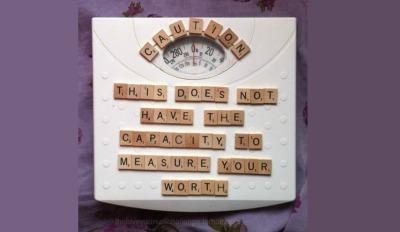Archive for December 2016
Who Does Co-Parenting Benefit?
Co-parenting is not just about the kids.
Co-parenting is a term that most people don’t hear until they’re separating or divorcing. But the truth is that co-parenting is the ideal way to parent regardless of marital status. (Although, ideal doesn’t mean it will work best for you and your situation.) That’s because parents who raise their children this way agree on parenting decisions and choose to put their kids’ needs first.
At first blush, this definition of co-parenting makes it seem like the kids are the only beneficiaries. And there are definitely a lot of benefits for children whose parents co-parent. Among them are:
- Increased sense of security and self-worth. Kids who are co-parented know they can rely on both Mom and Dad to have their best interests at heart and to be consistent in their parenting decisions. This increased sense of security also translates to the children feeling loved and important.
- Decreased stress, anxiety and guilt at each of their homes. When kids know that their parents are working together to raise them, they don’t have to worry about Dad or Mom. They are free to simply be kids.
- Decreased stress and anxiety outside of the home. When children can trust their parents to present a united front to their teachers, coaches and babysitters, they can stop worrying about which of their parents will be interacting with these other important adults in their lives.
- Exposure to respectful problem solving. When Mom and Dad choose to co-parent, they are also choosing to resolve conflicts in a respectful manner. This choice allows children, who are watching their parents carefully for clues on how adults behave, to learn the skill of diplomacy in relationships.
- Improved communication and relationships with both parents. When Dad and Mom share in parenting responsibilities the opportunities for the kids to spend quality time with each of their parents increases dramatically. And this quality time naturally leads to conversations and relationship building.
But co-parenting isn’t just about the kids, it also benefits the parents in some pretty profound ways.
- Breaks from parenting. When a couple chooses to co-parent, then they have confidence that their children’s other parent will be doing a comparable job with the children. This reduces stress and worry and allows the off parent to relax. These breaks are especially important during separation and divorce because they give each parent alone time to heal and have adult time without worrying about their kids.
- Reduced conflicts about parenting. Co-parenting requires that parents get on the same page about how they will raise their children. It also necessitates that the parents will continue to discuss parenting issues as they arise so they can continue being on the same page. This agreement and focus on growing the agreement as their children grow dramatically decreases arguments about parenting even when the parents are separated or divorced.
- Emotional support. When parents choose to co-parent, they will naturally be there for each other when challenges arise in raising their children.
The extended family also benefits when parents choose co-parenting.
Grandparents, aunts, uncles, and cousins also benefit when separated or divorced parents choose co-parenting over parallel parenting because co-parenting eliminates any fears the children may have about spending time with them. And when kids aren’t afraid of how interacting with their extended family might impact their relationships with their parents, they’re free to have rich relationships with their whole family despite their parents’ divorce.
These benefits of co-parenting make it sound like it’s a no-brainer of a choice. But that’s not always the case. Sometimes there are complications that prevent co-parenting from being a viable choice. Issues such as addictions, criminal backgrounds, violence, restraining orders, abuse, neglect and abandonment make co-parenting challenging at best and impossible at worst.
And even if you and your children’s other parent choose co-parenting as the parenting style you’ll use during your separation and divorce, that doesn’t mean it will be easy. You’ll need to develop a means of putting your adult concerns to the side so you can be the co-parents your children, you, their other parent, and your extended families deserve.
I’m Dr. Karen Finn, a divorce coach and advisor helping people just like you who are looking for advice and support about co-parenting. You can join my newsletter list for free weekly advice. If you’re interested in taking the first step toward working with me, you can schedule an introductory private coaching session.
Looking for more co-parenting tips? You’ll find what you’re looking for in Coparenting.
There’s A MAJOR Reason ‘The Divorce Diet’ Sounds Too Good To Be True
I know I’m not your mother, but you HAVE to eat.
Even though my ex-husband and I knew divorcing was the best answer for resolving our issues, actually going through and getting over it was one of the most difficult experiences I have had. The transition was so painful I sometimes wondered if I would ever be happy again. Was I losing my mind?
My misery was so profound that I plunged into the depths of depression and anxiety. I had difficulty sleeping, making decisions and eating. Honestly, I had so much trouble eating that I took the divorce diet to the extreme – I became anorexic.
When I look back at that time in my life, I feel tremendous amounts of compassion for the woman I was then.
She felt so lost, afraid, and out of control of her circumstances that I understand why she chose not to eat. It seemed like an appropriate choice.
There was the constant nausea.
There was the fear of gaining weight (and thereby becoming even more unlovable than she already felt).
There was the fear of spending money on food when there were so many other expenses breathing down her neck.
And then there was the sense of control that came with choosing not to eat.
From my vantage point today, I realize that choosing not to eat, or at times simply forgetting to eat, made getting through my divorce way more difficult than it needed to be.
Food has a direct impact on our ability to think. By starving my body, I was also starving my mind. Not eating exacerbated my difficulty making good decisions and added to the stress and anxiety I experienced every single day.
It was a vicious cycle that many people who divorce get trapped in. The depression, stress and anxiety of divorce are typical appetite killers, and yet, the divorce diet only increases the negative impact of those emotional states.
The good news is that I eventually broke the cycle, and you can too, by following these simple tips:
- Ignore your instincts about eating.
You’ve probably lost your appetite somewhere along the way of your journey through divorce. It’s time to start using some logic.Choose to eat something at regular intervals throughout the day instead of relying on whether you’re feeling hungry. Consider setting daily alarms to remind yourself to eat. - Make eating easy for yourself.
Have simple foods like nuts, fruit, protein/nutrition bars, cans of soup, and frozen meals on hand so finding something to eat is a non-issue.Eating out is another option to make mealtime simple. - Use mealtimes to build – and even rebuild – social connections.
The pain of divorce is terribly isolating and the loneliness is profound. Grabbing a bite is an easy excuse to get together with friends and family so you can connect with them.The connections over meals can have a soothing effect well beyond that offered by the food you consume.
These steps work.
They’re the exact steps I followed to break out of my extreme version of the divorce diet. They’ll work for you too.
It took me a while to get all three steps down and I was far from perfect as I implemented them.
I started with ignoring my instincts about eating and just ate whenever the clock hit certain times. I ate whatever was easy (a bag of chips, a cookie, a protein bar, a banana) without much regard to nutritional value.
After I got used to eating again, I realized that although I felt better, I still felt like crap. I was eating too much junk food and not enough real food. That’s when I started making sure I had simple, healthier food available.
Planning my meals made a HUGE difference.
Eating helped my ability to deal with my divorce. My thoughts were clearer, and with improved clarity, I realized that building connections with my family and friends over mealtimes was a great way to get me out of the house. I learned how to think about other things and not hyper-focus on my problems. Learning how to refocus helped me move on with my life.
Divorce is just a difficult life transition, but you can ease your way through.
Just remember to eat.
I’m Dr. Karen Finn, a divorce and personal life coach helping people just like you who are looking for advice and support in healing after divorce. You can join my newsletter list for free weekly advice. And if you’re interested in taking the first step toward working with me, you can schedule an introductory private coaching session.
Looking for more help getting over your divorce? You’ll find what you’re looking for in Dealing With Grief.
This article originally appeared on YourTango.
Am I The Only One In WTF Mode?
In short, no. Here’s why and what you can do about it.
Getting served with divorce papers out of the blue is without question a WTF moment.
Seriously, how could you ever be prepared for it? Sure your marriage wasn’t perfect, but whose is? And what gives the person who promised they’d love you forever the right to just quit? These and a million other questions are probably running through your mind right now.
Your thoughts are swirling with trying to make sense of the fact that your spouse or soon-to-be-ex wants a divorce and your emotions are just trying to catch up. One minute you’re in shock, the next you’re pissed and then you’re sad. All you’re left with is WTF.
The brutal truth is your spouse has betrayed you – well, at least they’ve betrayed your expectations. We all build our lives on expectations because it’s how we’ve learned to make sense of the world. The problem is we base our expectations on assumptions about other people. And, unfortunately, our assumptions aren’t always correct.
That’s why when an experience challenges or simply proves wrong one of your fundamental assumptions – that your marriage is going to last – your entire world perspective goes into WTF mode. You’re in shock because if this one assumption is wrong, that means others could be too.
It’s way too much to handle all at once. So your brain safeguards you by not letting all the information and pain in at once. And you’re left with your spinning thoughts, feeling overwhelmed, and not sure what to do about anything.
As horrible as it all feels, it’s also perfectly normal. But that doesn’t mean you’re stuck here.
So, WTF can you do about it when you’re feeling like all is lost?
The first thing is to find a way or two to comfort yourself so you can feel safer. (Yes, safer. Because getting served divorce papers has shaken if not entirely broken one of your basic assumptions about life, it’s very normal to experience fear and confusion.)
Some of the things you can try to immediately feel safer include:
- Confiding in supportive family and/or friends about what’s going on. If you don’t have family or friends you want to confide in, the DivorceForce discussion forum is an amazing place to do this. It’s filled with people who really understand what you’re going through because they’ve either been there or they’re going through it themselves right now too.
- Giving yourself a hug. It might sound silly, but it really works. And seriously, what do you have to lose? Hugging increases your sense of security and positive feelings – even if you hug yourself or just imagine it.
- Taking deep calming breaths. Did you know that your breathing has a direct impact on how you’re feeling? When you’re feeling under stress you breathe more shallowly. And when you breathe more shallowly, you increase your anxiety. It’s a horrible cycle to be in, yet really easy to break. Just make an effort to breathe deeply whenever your distress kicks in and you’ll be surprised at how quickly you’ll start to feel more calm.
- Saying a prayer. Getting connected with your higher power can provide tremendous support and perspective. (When I got divorced and was going through my own WTF phase, my go-to prayer was the Serenity Prayer.)
- Meditating. If you’re already a believer in meditation, you know how powerful it is. Meditation allows you to draw your focus off all of the chaos you’re experiencing and purposely place it on something else – like your breath, or counting, or a mantra, or even a visualization.
- Talking with a helping professional. Sometimes the experience is too overwhelming to tackle on your own even with the help of family, friends and DivorceForce. It is for many (if not most) people. If you’d like more personalized guidance from someone who’s had more experience with divorce, then reach out to a helping professional like a religious leader, a therapist, your doctor, or even a divorce coach.
- Exercising. It’s amazing what getting your body in motion can do for your thoughts and emotions. In fact, the Mayo Clinic recommends exercise to help alleviate depression because it releases feel-good chemicals in your brain and reduces immune systems chemicals. And the thing is the exercise doesn’t have to be intense. Even taking a walk will help tremendously.
- Working. If your work is something you can lose yourself in, then it will be easy to “forget” about what you’re going through – at for least a little while.
- Cussing. Yup, sometimes a good old f-bomb or two can really help you express what you’re feeling. And it’s really important that you express what you’re feeling because it allows you to process it instead of just ruminating on it with no outlet. It’s when you hold on to things that they fester and you stay stuck. So if you feel the urge to express yourself with colorful language, go for it!
Even though it might not feel like it now, you WILL find your way through this haze of WTF and the tips on this list will help you do it. (All of us who have gone before have made it through our divorces by doing at least some of these 9 things.)
And as painful as it is to think about, the fact that your spouse has served you means your divorce journey is just beginning. So keep this list handy.
There will be other things that come up along your divorce journey that could through you back into feeling overwhelmed. Just put these tips back into practice and you’ll make it through.
I know things seem otherworldly and overwhelming right now and that you’re not sure you can make it through your divorce. But I want you to know that no matter how dark things seem right now, you can make it through your divorce.
I’m Dr. Karen Finn, a divorce coach and personal life coach helping people just like you who are struggling with divorce and don’t know how to move forward with their lives. You can join my anonymous newsletter list for free weekly advice. And, if you’re ready, you can take the first step toward working with me as your personal coach by scheduling a private consultation.
Looking for more support and ideas for feeling better after your divorce? You’ll find what you’re looking for in Healing After Divorce.
This article originally appeared on DivorceForce.
How To Heal From Divorce? Stop Doing This
Not doing this one thing will change EVERYTHING!
Your logical mind knows the fact that thousands of people survive divorce every year. However, the rest of you isn’t so sure you’ll be one of them.
You’re facing too many changes, too many losses. You’re not sure if you have the strength to continue on. You’re hardly sleeping or eating and you’re afraid you’re becoming severely depressed since you’re crying all the time.
Despite what you’re currently experiencing, there is hope. And that’s what you need to amplify. But it’s hard to do that when you’re swamped with negativity. So before you can accentuate the positive, you need to decrease the depression, panic, fear, anxiety, and worry.
It sounds like a lot, but you can address all of them if you do just one thing: stop worrying.
This probably sounds both simplistic and impossible. But, it turns out that worry is at the root of all the rest of it. According to Psychology Solution, here’s how it works:
WORRY leads to ANXIETY which leads to FEAR which leads to PANIC which leads to DEPRESSION
So if you stop worrying, then you can stop the chain reaction which leads toward depression.
The first step to stop worrying is understanding what worry is so you can recognize it when it happens. You worry when you’re facing an unknown or poorly defined threat that you’re trying to defend against.
These amorphous threats are usually the product of your imagination and are most easily recognized when you catch yourself caught up in a negative “what if”. What if I don’t get a favorable settlement? What if I’m alone for the rest of my life?
The problem with these negative “what if’s” is that you can’t solve them now. And when you have a problem you can’t solve you feel helpless or overwhelmed.
So when you catch yourself getting caught up in a negative “what if”, feeling helpless or overwhelmed, you know you’re dealing with worry.
Once you’ve caught yourself worrying, you can take one or more of these action steps to feel more in control and more calm.
- Gather more information about the situation. When you don’t have enough information or understanding about what’s going on it is way too easy to slip into worry. But when you’re sufficiently knowledgeable about what to reasonably expect, it’s amazing how quickly your worry will evaporate.
- Organize the information you have. Sometimes you have too much data to make sense of all at once. Your best bet in this situation is to organize what you know. By organizing it (even just a little bit) you’ll be able to formulate questions that you can find the answers to and that will help you to start shedding your feelings of overwhelm.
- Verify the information you have. It’s common to find conflicting information when you’re dealing with all the intricacies of divorce. When you do find information that doesn’t make sense, ask questions and do some research. The simple act of getting into action with determination and direction will eliminate helplessness.
- Imagine a brighter future. Humans naturally have a tendency to imagine the worst, but a tendency doesn’t mean that you have to continue doing it. When you notice that you’re succumbing to your imagination’s thoughts of horrible outcomes, start playing a game of coming up with 5 positive possibilities to counteract each negative one. (Just so you know, 5 isn’t an arbitrary number. There’s research in all kinds of situations showing that it takes 5 positives to cancel 1 negative.)
Trying something new – especially something that will require effort on top of everything that’s going on with your divorce – isn’t the easiest thing. But it’s only by taking positive action as you’re able that you’ll heal from your divorce.
So make the effort to choose some of the change you’re facing and choose to experience one specific loss – being overwhelmed and paralyzed by worry. And the best part is that when you’re free from worry not only will you heal from your divorce, but the rest of your life will be better too.
I’m Dr. Karen Finn, a divorce and personal life coach helping people just like you who are struggling with divorce and don’t know how to stop the pain so they can move forward with their lives. You can join my anonymous newsletter list for free weekly advice. And if you’re interested in taking the first step toward working with me, you can schedule an introductory private coaching session.
Looking for more support and ideas for healing from divorce? You’ll find what you’re looking for in Dealing With Grief.
This article originally appeared on DivorceForce.
How Do I Know Things Are Going To Be Alright?
The first step is to choose to make them that way – no matter what.
Horror. Destruction. Betrayal. Loss. Grief. Fear. Pain. Loneliness. Guilt. Rejection. Shock. Disbelief. Anger. These are just a few 1-word descriptions of divorce.
Although they’re each powerful, none of these words evoke any positive thoughts. And that’s because they are all attempts to describe the devastation of divorce.
Divorce is never truly understood until you experience it yourself – until you know firsthand what it feels like to have not only your relationship, but your life and your identity stripped away.
Complete and utter devastation of all that was is incomprehensible to anyone who’s never experienced it. And yet these people who don’t really get it try to console you by telling you things are going to be alright.
What do they know?!
How can things ever be alright again?
These are important questions because they hint at the depths of your despair.
But, despite their naïveté, these people are correct that things will be alright (usually) because they know you. They know that deep down, under all of the pain, you’re strong. They’ve seen you overcome other setbacks in your life and they have confidence in you – even if you don’t have it in yourself right now.
However, there’s still the chance you could prove them wrong. But that’s only if you give up. If you choose to stop pushing forward, to stop wanting better for yourself (and your children), to settle for the misery you’re currently experiencing, then things won’t be alright. You’ll have chosen to let the negativity of divorce define you.
Having the ability to choose what you want next in your life is an incredibly powerful position for you to be in because it means you can create what you want next. It doesn’t mean it will be easy. It just means it’s possible.
So if you want to know things will be alright, you need to choose to make your life better. When you make that choice with all your heart, then things will be alright.
But simply making this choice doesn’t change the way things are at this exact moment.
What choosing to make your life better and not letting your divorce define you means is that you’ll have to continue to feel the pain. But now when you feel the pain you’ll know that you’re doing what you need to do to make things better too – no matter what. And that knowledge will change everything.
No matter what other horrible things happen along the way or how horrible you feel, you continue to choose to make things better. You choose to do what needs to be done. Your focus and determination alone guarantees you that things are going to be alright. They’ll be different, but things will be alright. And when things are alright you’ll be good too.
Now this is easy to say, but not necessarily easy to do because you’re in the midst of divorce negativity. So, here are some tips for stepping out of the negativity – just a bit – so you can get to the point of continuously choosing to make things better:
- Breathe deeply. This isn’t a patronizing suggestion. Taking deep breaths provides significant benefits: managing stress and anxiety, lowering blood pressure, regulating heart rate, sparking brain growth, improving immune function and boosting energy.
- Hug yourself. Nope not patronizing either – Psychology Today reports that hugging increases your sense of security, positive feelings and better health. Further, PsychCentral states that you can receive these benefits by hugging yourself or just imagining a hug.
- Write your feelings down. According to University of Rochester Medical Center findings, journaling helps manage anxiety, reduce stress and cope with depression. And if that’s not reason enough to journal, Huffington Post reports these additional benefits: enhancing self-confidence, sparking creativity, promoting healing, improving communication skills, strengthening self-discipline, boosting memory and comprehension, boosting emotional intelligence, evoking mindfulness, stretching your IQ and achieving goals.
- Seek out support. One of the easiest ways to know things are going to be alright is to surround yourself with others who know firsthand that things will be because they’ve successfully made it through their own divorce. You can find these people running divorce support groups, providing services as a psychologist, therapist or divorce coach, and lots of other places online.
As you regularly practice these four tips, you’ll be able to more and more regularly step out of the negativity so you can focus on making your life better.
And just like everyone else who’s made the choice to make their life better and refused to let their divorce define them, you’ll be able to use different words to describe divorce than you’re using right now. Your new positive 1-word descriptions of divorce might even include: Empowering. Confidence-building. Self-love. Creation. Self-discovery. Joy.
I’m Dr. Karen Finn, a divorce and personal life coach helping people just like you who are struggling with divorce and don’t know how to stop the pain so they can move forward with their lives. You can join my newsletter list for free weekly advice. And if you’re interested in taking the first step toward working with me, you can schedule an introductory private coaching session.
Looking for more support and ideas for feeling better after your divorce? You’ll find what you’re looking for in Dealing With Grief.
This article originally appeared on DivorceForce.
8 Ways To Finally Stop Wasting Your Time Hating Your Ex
Hating your ex is only hurting you.
You’ve done it! You’ve finally created a post-divorce life for yourself that you love. And honestly, things are absolutely perfect. Well, perfect except for one thing – you still hate your ex.
Hating your ex for a while as you heal from your divorce is part of the process. But when the hatred doesn’t abate despite moving on in every other way, it’s time to re-evaluate the energy you’re continuing to invest in the animosity.
The fact that you still hold such abhorrence toward your ex reflects all the hurt you felt about the end of your marriage and/or your ex’s behavior before, during and after the end. And these are valid reasons to seriously dislike, mistrust, and/or wish your ex would fall off the face of the planet.
But the more time, effort and emotional energy you spend hating your ex, the less time, effort and emotional energy you have for you and your nearly perfect new life. And seriously, your ex doesn’t deserve any more of you, do they?
So now it’s time to put the detestation behind you and stop investing in the past.
Here are 8 tips to help you move on from hating your ex:
- Get Grateful. Start focusing on what’s good about your life now. Any time your mind wanders to the past and what did or didn’t happen, remember that today you’ve got a great life and shift your attention to what’s good.
- Take a technology timeout. Being connected is a fact of life and has its benefits and detriments. And technology has a couple significant drawbacks when you’re still hating your ex. First, the ability to connect 24/7 increases the likelihood of yet another argument with your ex. Second, the ability to keep tabs on what your ex is doing. Neither of these is necessary or good for you, so do what you have to do to eliminate being constantly connected to your ex and the temptation to cyberstalk them.
- Curb the caffeine. Caffeine triggers the release of adrenaline which stimulates the fight, flight or freeze response. So when you know you will need to interact with your ex, cut down on your caffeine consumption and you’ll find that you are more able to keep your cool.
- Stop the negative self-talk. When you load yourself up with negativity about you, it’s really easy to want to shift the focus (and blame) from you to your ex which only exacerbates your extreme dislike. So learn to stop the negative chatter about you and you’ll start being less vulnerable to your ex’s antics.
- Get sufficient slumber. I’m sure you’ve noticed that if you don’t get enough sleep, you tend are grumpier the next day. Well, if you’ve already got plenty of reasons for still hating your ex, then cheating yourself out of the rest and recovery that sleep offers will just make you that much more prone to continuing your hatred because you’re too exhausted to try something different (like these 8 tips).
- Change your perspective. You’ve already had to change your perspective about so many things because of your divorce. Choosing to change how you feel about your ex is just another one of the perspectives you’ll be better off changing that continuing to center on. (And changing your perspective doesn’t mean that you’re going to forget. It just means that you’re not going to focus on the negativity anymore.)
- Set boundaries. There’s no reason why you can’t come up with appropriate limits to how and when you will engage with your ex. (Obviously, if you have kids your engagement with your ex will be much greater than if you don’t.)
- Stay aware of your emotions. Hate is a very strong emotion. When you’re stuck hating your ex, it’s very easy for the hatred to seem to take on a life of its own. That’s when you know you have a habit, an unconscious reflexive emotion of hatred toward your ex. By staying aware of your emotions, you’ll be able to catch yourself in the habit of hostility and choose to change your thoughts as you consciously move on from hating your ex.
Employing these 8 tips won’t cause you to immediately stop hating your ex. But they will get you on the correct path for finally moving past the hatred and hurt.
And if you find that after working these 8 tips on your own for a while that you’re still stuck hating your ex, then it’s time to reach out for some help. There are plenty of divorce professionals who can help you overcome your hatred.
Your time is precious – arguably the most precious resource you have. You’ve already invested so much time into your ex and the marriage you had. You don’t need to continue to spend any more of your life hating your ex. You deserve to fully enjoy the wonderful new life you’ve created for yourself without your ex ever taking any more undeserved focus again.
Looking for more advice to make your post-divorce life great? You’ll find what you’re looking for in Life After Divorce.
I’m Dr. Karen Finn, a divorce coach and advisor helping people just like you who are looking for advice and support in making sure their after divorce is great. You can join my newsletter list for free weekly advice. If you’re interested in taking the first step toward working with me as your personal coach, you can schedule an introductory private coaching session.
How To Immediately Deal With The Loneliness Of Divorce
You need these 6 tips to help you learn how to deal with loneliness after divorce.
Losing your marriage to divorce is one of the most difficult losses you’ll ever experience. What you’ve lost is so much more than just a marriage. Among so many losses, you’ve also lost a way of life, your dreams for the future, and your sense of belonging.
Despite the family and friends who are reaching out to help and support you as you struggle to make sense of your new reality, the truth is you’ve never felt so isolated and alone. You just don’t quite feel like you fit into the world now like you did when you were married.
Learning how to deal with loneliness is a normal (but really miserable) part of divorce.
But where do you start? Obviously, you don’t want to start with any philosophical statements about how dealing with loneliness is good for you. Where you need to start learning how to deal with loneliness is with things that you can do to immediately start feeling better.
Here are 6 tips to help you on your path to discovering how you can deal with the loneliness you’re experiencing:
- Set a timer for 20 minutes and check out social media. OK, this is a tricky one and that’s why you need to set a timer. Social media can help you feel more connected with people and that’s what we’re going for here. BUT social media can also make you feel lonelier if you’re using it to do things like compare your life to someone else’s or stalking your ex. So long as you’re using it purely to have a sense of positive connection, social media is a great way to assuage your isolation.
- Pick up your phone and text or call someone. Reaching out to a loved one when you’re feeling lonely is one of the easiest and quickest ways to deal with loneliness. There’s an immediate connection that can pull you back from the unwelcome solitude you’ve been struggling with. (Of course, this may not work so well in the middle of the night.)
- Turn on the TV or radio. Regardless of what time of day it is, there are always TV and radio stations broadcasting. When I was learning how to deal with loneliness after my divorce, I almost always had either the TV or radio on when I was home –just for the noise. The sound made my home feel less empty which helped me to feel less alone.
- Know that the profound loneliness you’re feeling is a normal part of divorce. Although very few of the emotions you’ll experience as you heal from your divorce will feel normal, the loneliness that you’re struggling with right now is completely normal and expected. Knowing that it’s OK and even expected that you’ll feel lonely as you work through the end of your marriage could increase your acceptance of it. And by accepting the loneliness as just a part of the divorce process, the stress and misery of it will decrease just a bit.
- Shift your focus away from what was and what you could have, should have or would have done. When you’re dealing with the loneliness of divorce, it’s really easy to slip from feeling lonely to beating yourself up for what might have been if only you had done something different. And the more the beat yourself up, the lonelier you feel. So go ahead and distract yourself from these thoughts of could have, should have and would have and you’ll notice that your loneliness lightens.
- Do something that feels especially nurturing. When you’re feeling sad and all alone, one of the best ways to pull yourself out of it is to baby yourself. Do something that feels incredibly loving and indulgent. When you do, you just might find yourself shifting a bit from feeling lonely to enjoying a little bit of alone time.
Hopefully, these 6 tips are exactly what you need to help you know just how to deal with your loneliness. And then again, maybe they aren’t.
If they weren’t that’s OK, because they’ve provided you with some inspiration for the creating your plan for what to do when your loneliness hits.
Either way, knowing how you’ll deal with one of the most miserable parts of one of the most difficult things you’ll ever experience will go a long way to helping you to find your way through all the losses of divorce.
I’m Dr. Karen Finn, a divorce and personal life coach and advisor helping people just like you who are looking for advice and support in healing after divorce. You can join my newsletter list for free weekly advice. And if you’re interested in taking the first step toward working with me, you can schedule an introductory private coaching session.
Looking for more help getting over your divorce? You’ll find what you’re looking for in Dealing With Grief.







